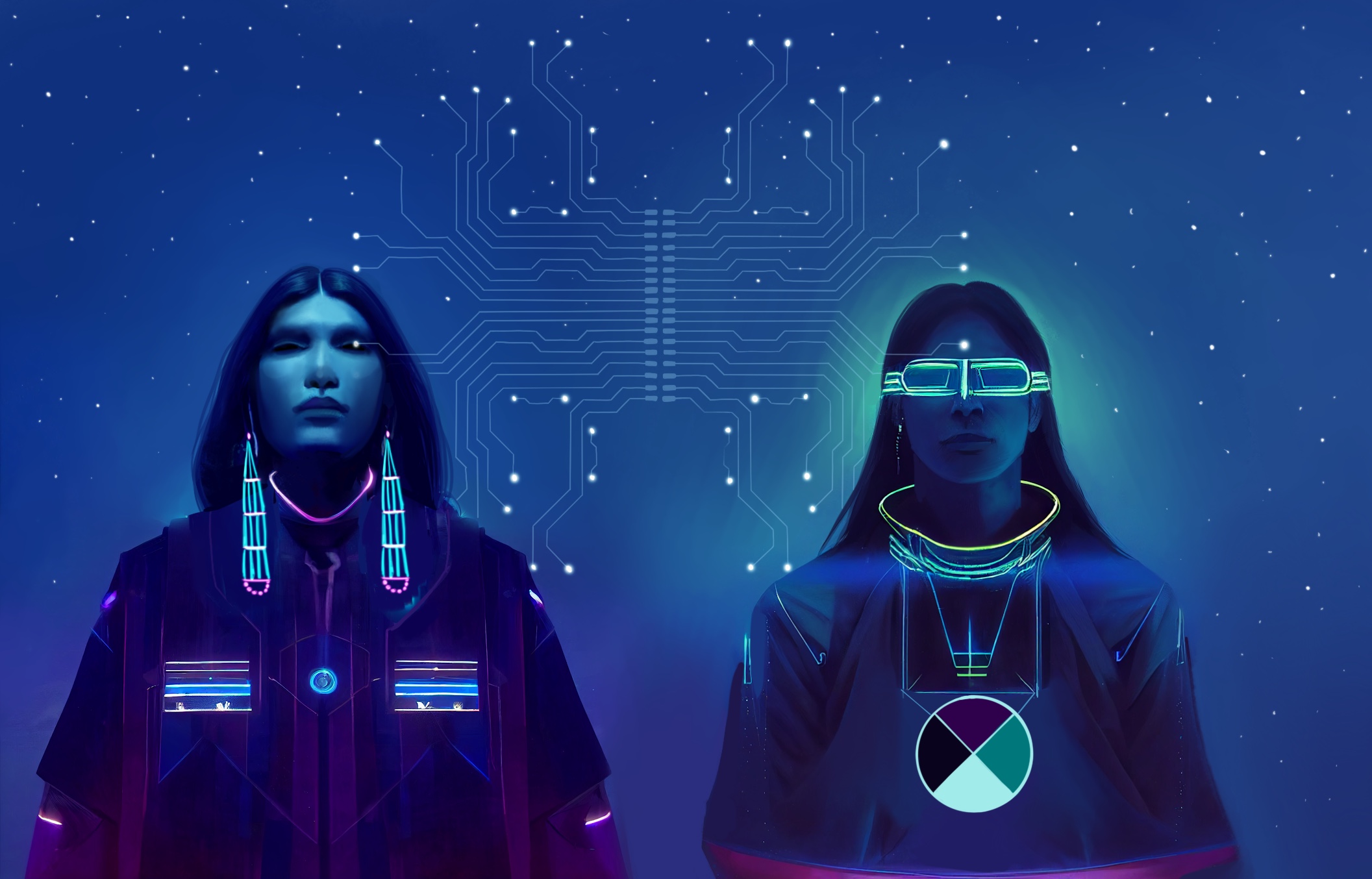Dr. Gabriela Spears-Rico is a cultural anthropologist and an assistant professor of Chicano Latino Studies with a joint appointment in American Indian Studies. A Pirinda Charense and P’urhepecha (descendant) feminist scholar and poet, Dr. Spears-Rico’s BA is from Stanford University and her MA and PhD in Comparative Ethnic Studies from UC Berkeley. Her work examines manifestations of consumption and cultural appropriation in touristic transactions between mestizos and Indigenous people in Mexico. Her primary investment is in unraveling how the trauma of rape from the Spanish conquest informs the mestiza/o desire to tour and inhabit Indigenous communities. She is currently working on Mestiza/o Melancholia and the Legacy of Conquest in Michoacán, a book that offers an ethnographic analysis of the Days of the Dead and the Virgin of Guadalupe pilgrimages in Mexico to examine how “going native” or “playing Indian” functions in Mexico.
Alex Jacobs-Blum (Lower Cayuga of Six Nations/ German), is a lens-based artist and curator based in Ohròn:wakon (Hamilton, ON). Alex’s deep passion for community, relationship building, uplifting youth, and challenging settler colonialism are integral to her practice and methodology. She strives to empower change by pushing boundaries to disrupt institutional spaces. She is currently the Indigenous curatorial resident at Hamilton Artist Inc, where she developed her first curatorial exhibition, “Born Celestial.”
Yuma Dean Hester — Anishinaabe (Neyaashiinigmiing) and Ililowuk (Moose Factory) — has spent the better part of 20 years in community development, working and consulting with over 30 First Nations communities. He specializes in consultation and facilitation skills, relationship development, open and effective communication, and solution-oriented discussion. He is a founding member and creative director with Bawaadan Collective.
Vilma Almendra and Emmanuel Rozenthal do not speak on behalf of Pueblos en Camino (the people’s path), because it does not have speakers. Pueblos en camino is a proposal, a bet, and a challenge in front of the mirror and to the transitions (for good or bad) of our times. The departure point is a commitment to knitting resistances and autonomies between peoples and processes that we are identified with. We are driven by the search of other-politics from the defense, the resistance, and the reproduction of life in common and collective. Horizons, webs, experiences, wisdoms, knowledge and searches from areas and meanings that usually doesn’t fit, and has never fit on the limits of politics (Capital-Modernity) imposed to serve inevitably the project of accumulation and exclusion. With that landscape operating, knitting people and processes, that prioritizing; off course, resistances from those communitary horizons of politics and the politic towards capital, to the permanent conquest, to the dispossession in the corporative-speculative transnational phase that threatens the whole life.
UAIIN-CRIC Consejo Regional Indígena del Cauca
On February 24, 1971, in Toribío, seven Cabildos and the same number of Indigenous reservations created the Regional Indigenous Council of Cauca – CRIC. They named the first executive committee, but it could not function due to the repression of the landowners and little organization in the community. In September of the same year, the second congress of the C.R.I.C was held in Tacueyó, where the points of the movement’s political program were defined, and the teachings of leaders such as La Gaitana, Juán Tama, and Manuel Quintín Lame resumed, strengthening our struggles to achieve the application of Law 89 of 1890.


